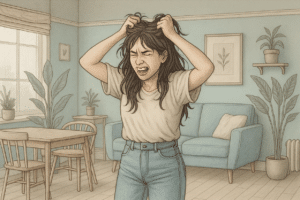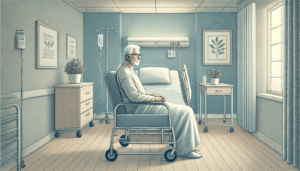Based on information from the World Health Organization, nearly 350 million people around suffer from a form of clinical depression, which makes it the number one cause of disability. In the United States, an estimated 7% of the population suffers from depression.
These rates have continued to increase for years, but many experts assume that this is because the effects of depression have become more widely recognized. Regardless, it is helpful to recognize the factors that lead a person to suffer from depression, so that we can do more to help people negate the effects of this increasingly common mental disorder.
Genetic disposition
If a person has family members who suffer from depression, then there is a stronger likelihood that they might exhibit symptoms of depression at some point in their own lives. This is true for many different mental disorders.
There are two reasons for this. The first is that depression that is untreated may contribute to an environment that is unhealthy for other individuals’ mental health. Secondly, there is actually a genetic component to depression that can be passed from parent to child.
Developmental trauma
Traumatic experiences that occur during childhood can have long-lasting effects that go into adulthood, for an individual. While events and environmental experiences can have an impact on developing clinical depression, later in life, it is incredibly common for events in childhood to bury in a kid’s developing mind. These types of events can be the root of many types of mental disorders, including depression.
Substance abuse
There are plenty of instances of depression being a co-occurring problem with other mental disorders, but one particularly egregious example of this is substance abuse. Whether it be alcohol abuse, or the abuse of stronger substances, such as heroin, there are clear links between continuous behavioral disorders (like addiction) and depression.
There is a bit of a chicken and egg conundrum with substance abuse, since depression causes a greater chance that a person self-medicates with illicit substances, but increased substance abuse can also lead to clinical depression.
If you know somebody who struggles with a dual diagnosis of addiction and depression, don’t hesitate to get them help, today!








